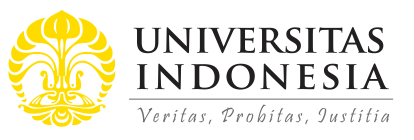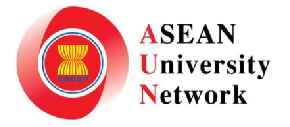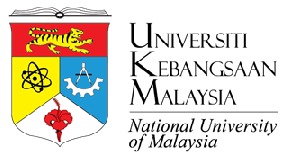
Abstract
The main aim of the study is to identify political public relations approaches that can be applied by the government and other bodies responsible for conducting elections in Nigeria to mitigate and eliminate vote buying. The study adopted a qualitative approach in the contextual analysis of data collected specifically from secondary sources. The results revealed that vote buying has become synonymous with elections in Nigeria. After reviewing some related empirical studies, several factors responsible for vote buying in Nigeria have been identified, including poverty, lack of education, high cost of buying forms to contest elections, and many others. Moreover, where votes are purchased by political parties and candidates, the essence of elections as a credible leadership selection process is often put on the line. Another disadvantage associated with vote buying is that the practice can produce leaders who have questionable characters and are not the actual choice of the masses. Where this practice is condoned, this can lead to bad governance and, ultimately, underdevelopment. Therefore, the study recommends good governance and enough sensitization campaigns as political public relations strategies of combating vote buying in Nigeria.
References
Achor, N.I. and Okoye, V. (2013). Status of government public in Nigeria and its institutionalization. International Journal of Science and Research, 6(14), 1643-1649.
Adamu, A. Ocheni, D. and Ibrahim, S. U. (2016). Money politics and analysis of voting behavior in Nigeria: Challenges and prospects for free and fair Elections. International Journal of Public Administration and Management Research, (3), 89-99. Retrieved from https://www. https://www.semanticscholar.org/
Ajala, V. O. (2001). Public relations in search of professional excellence. Ibadan: May Best Publishers.
Beetseh, K. and Akpoo, T. (2015). Money politics and vote buying in Nigeria: A threat to democratic government in Makurdi local government area of Benue State. International Journal of Public Administration and Management Research (IJPAMR), 2(5). Retrieved http://www.remss.com on 22nd April, 2021.
Besheer, M. (2018). UN: Right conditions needed for credible elections in Dec. Retrieved from www.voanews.com-africa-unright.co-on 16th March, 2021.
Bratton, M. (2008). Vote buying and violence in Nigerian election campaigns. Agrobarometer, Working Paper No.99. Retrieved from http://www.agrobarometer.org on 10th March, 2021.
Callahan, W.A. (2000). Poll watching, elections and civil society in Sourth-East Asia. Burlington: VT, Ashgate.
Canare, T.A., Mendoza, R.U. and Lopez, M.A. (2018). An empirical analysis of vote buying among the poor: Evidence from elections in the Philippines. South East Asia Research 26(1), 58-84.
Casimir, A., Omeh, E. and Ike, C. (2013). Election fraud in Nigeria: A philosophical evaluation of the framework of electoral violence. Open Journal of Political Science, 3(8), 167-174.
Chiakaan, G.J. (2016). Application of public relations by selected tertiary institutions in Benue and Nasarawa States in relationship management. PhD. Thesis submitted to postgraduate school, Benue State University, Makurdi, Nigeria.
Chiakaan, J.G. and Tsafa, T. (2021). Development Communication in Nigeria: A pragmatic approach. Jimeta Yola: Nonimod J. Venture.
Chile, C.T and Habu, A.E. (2020). Analysis of using public relations in local government administration in Nigeria. In Aliede, J., Chile, C. and Achioko, T. (eds) Public relations, governance and national development. Zaria: Ahmadu Bello University Press ltd.
Dahl, R. (1982). Dilemma of political democracy. New Haven: Yale University Press.
Dahl, R.A. (1971). What makes democracy endures. Journal of Democracy. 1(1), 164-181.
Davies, A. E. (2016). Money and politics in Nigeria electoral process. A memo of department of political science, University, Ilorin: Ilorin.
Denton, R.E. and Woodward, G.C. (1998). Political communication in America. Westport, C.T: Praeger Publishing.
Durotoye, A. (2014). Voting behavior in Osun 2014 governorship election in Nigeria. Public Policy and Administration Research, 4(8).
Edemode, J.O. (2003). Public Relations, governance and democratic dividends in Nigeria: The Nigerian Journal of Communication, 2(2), 85-94.
Fredric, C.S. and Andreas, S. (2005). What is vote buying? The limit of market model. Being a text of paper delivered at the conference of poverty, democracy and clientism: The political economy of vote buying, organized by department of political science, Stanford University, United Kingdom.
Froelich, R. and Rudiger, B. (2006). Framing political public relations: Measuring the success of political communication strategies in Germany. Public Relations Review, 32(1), 18-25.
Igbe, T. and Terhemen, L.T. (2020). The 2015 general elections: A Critical loot at persuasive communication techniques. In Aliede, J., Chile, C. and Achioko, T. (eds) Public relations, governance and national development. Zaria: Ahmadu Bello University Press ltd.
Iornumbe, C. (2020). Efficacy of government public relations in democratic governance in Nigeria. In Aliede, J., Chile, C. and Achioko, T. (eds) Public relations, governance and national development. Zaria: Ahmadu Bello University Press ltd.
Jev. A.A. and Dzoho, B.B. (2014). Issues in politics of development and underdevelopment in Africa. Makurdi: Eagle Prints Nigeria.
Keghku, T. (2005). Public relations and the Nigerian economy. Makurdi: Aboki Publishers.
Lioba, M. and Abdulahi, A.O. (2005). Democracy and culture: An African perspective. Lagos: Adoris and Abbey Publishers.
Littlejohn, S. W. (1996). Theories of human communication. Belmont, CA: Wadsworth.
Lucky, O.O. (2014). Money politics and vote buying in Nigeria: The bane of good governance” in Mediterranean Journal of Social Science, 1(3), 11-23.
Matenga, G. (2016). Cash for votes: Political legitimacy in Nigeria. Retrieved from http://www.opedemocracy.net /gram-matergnaa/cash-for-cash-political-legitimacy-in-Nigeria. 14th April, 2021.
Mohammed, A.B. (2016). The menace of vote buying and selling in Nigeria and ways forward. Received from https://papers.ssrn.com 17th June, 2021.
Nkwede, J.O. and Abah, E.O. (2019). Election and vote buying in Nigeria: An albatross to democratization process. IOSR Journal of Humanities and Social Science, 24(8), 56- 62.
Nwankwo, B. C. (2002). Authority in government: Nigerian and world politics in focus. Onitsha: Abbot Books Ltd.
Nwosu, I. (1996). Public relations management: Principles, issues, application. Abba: Dominican Publishers.
Nwosu, I.E. (2010). Public relations management, principles, issues and survival. Public Relations Journal, Abuja: Nigeria Institution of Public Relations, 7(2), 1-22.
Ogbenla, D. and Waziri, B.A. (2012). Money-Bag politics, rent-seeking and flawed elections in Nigeria: A theoretical statement. Department of sociological, faculty of social sciences, university of Lagos. Journal of Public Administration and Governance, (2)1, 27-43.
Okpaga, A. (1999). “The post-colonial State in African and the prospect for development and democracy.” Nigerian Journal of Political and Administrative Studies. 1(1), 78-93.
Okugbe, G.E. (2009). Challenges of public relations practitioners in Delta. Journal of Social Science. 20(3), 183-187.
Oladapo, S. O., Oyewale, A. O., & Abayomi, H. O. (2020). Influence of Vote Buying Among Electorates; Its Implications to Nigeria Future Democracy. Higher Education of Social Science, 18(1), 73-78.
Olaito, V. (2018). Nigerian politicians, electoral and vote buying. The cable, July 16. Retrieved from http://www.thocaple.com on 16th March, 2021.
Omotola, J.S. (2007). Godfathers and the 2007 Nigerian elections. African Journal of Election. Special issues: Nigeria’s 2007 general elections: In Olaiya, T.A. (2004). Youth and ethnic movement and their impacts on party politics in ECOWAS member States. Sage open, 6(2), 1-12.
Onapajo, H., Francis, S. and Okeke-Uzodike (2015). “Oil corrupts elections: The political Economy of Vote-Buying in Nigeria” in African Studies Quarterly, Vol.5, Issues 2. Retrieved from http://www.africaufl.edu.asel vol.15, No.15. on 10th April, 2021.
Onuoha, F. and Ojo, J. (2018). Practice and merits of vote buying in Nigeria’s recent elections. Retrieved from https://www.accord.org April 19th 2021.
Osuji, C. (2001). Political Public Relations. Owerri: Opinion research and communication. Inc.
Saliu, H.A. and Lipade, A. (2008). Constraint of democracy in Nigeria: In Saliu A.H. et al., (eds). Perspective on nation building and development in Nigeria political and legal issues. Lahos concept publications limited.
Scot, W. (1967). Institutional theory: Contributing to a theoretical research program. Great minds in management: The process of theory development, 37(2), 460-484.
Terzengwe, W. C. and Ogba, M.C. (2021). Corruption as an impediment in achieving sustainable development goals in Nigeria: A critical reflection” Jalingo Journals of Social Management Sciences, 3(3), 94.
Recommended Citation
Chiakaan, Jacob Gbaden; Egbulefu, Chamberlain Chinsom; Kpera, Wombu Richard; and Kaigama, Pius Kwapsoni
(2021).
Political Public Relations as a Tool for Combating Vote buying in Nigeria for Development Purposes.
ASEAN Journal of Community Engagement, 5(2), 335-354.
Available at: https://doi.org/10.7454/ajce.v5i2.1157







